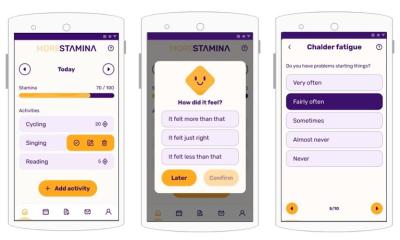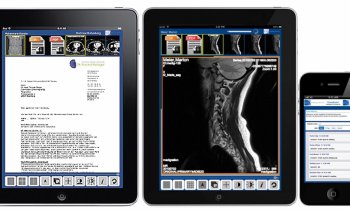© mojo_cp – stock.adobe.com
News • Digital support
New app triples chance to quit smoking
A new mobile application, developed under the leadership of researchers from the University of Oulu, has proven to be an effective aid for long-term smokers attempting to quit.
A study conducted at Oulu University Hospital found that using the application tripled the success rate of smoking cessation compared to using written materials. The study has been published in The Lancet Regional Health – Europe.
The study involved 201 smokers who participated in lung cancer screening as part of Finland's first pilot study on lung cancer CT screening, which began in Oulu in November 2022. Lung cancer CT screening has been shown to reduce both lung cancer and overall mortality in smokers, while also providing an opportune moment for smoking cessation interventions.
Recommended article

News • Review highlight need
Lung cancer screening: experts appeal for wide implementation of LDCT
The role of Low Dose Computed tomography (LDCT) screening for lung cancer has been under debate for decades. The screening uses a low dose of an imaging procedure that uses special x-ray equipment to create detailed pictures, or scans, of areas inside the body. The results of two major clinical trials have provided evidence on lung cancer-related mortality reduction as a result of LDCT.
All participants had a long and heavy smoking history (≥15 cigarettes per day for at least 25 years or ≥10 cigarettes per day for at least 30 years). Participants were randomized into two groups: the study group, which used the mobile application, and the control group, which received written cessation materials in line with the national Current Care Guidelines. After a three-month follow-up, 20% of those using the application had quit smoking, compared to 7% in the group that received written materials. This result retained at the end of the six-month follow-up period. The results indicate that active use of the application significantly improved the chances of quitting smoking. Even among those who did not completely quit smoking, a larger portion of mobile application users had significantly reduced their smoking compared to the control group.
The mobile application developed by the researchers is based on cognitive behavioral therapy. It aims to increase awareness of health-deteriorating behaviors and support the individual's active role in regulating their behavior. Features include weekly symptom surveys, mindfulness exercises, and a virtual support person. The application is currently available only for research purposes.
This newly published study is reportedly the world's first randomized clinical trial demonstrating the efficacy of a mobile application for smoking cessation in conjunction with lung cancer CT screening. According to the researchers, the application can be easily integrated into the lung cancer screening process. In further studies, researchers will focus on investigating the efficacy of the mobile application outside the context of lung cancer screening and in combination with other smoking cessation methods.
Source: University of Oulu
24.06.2024







